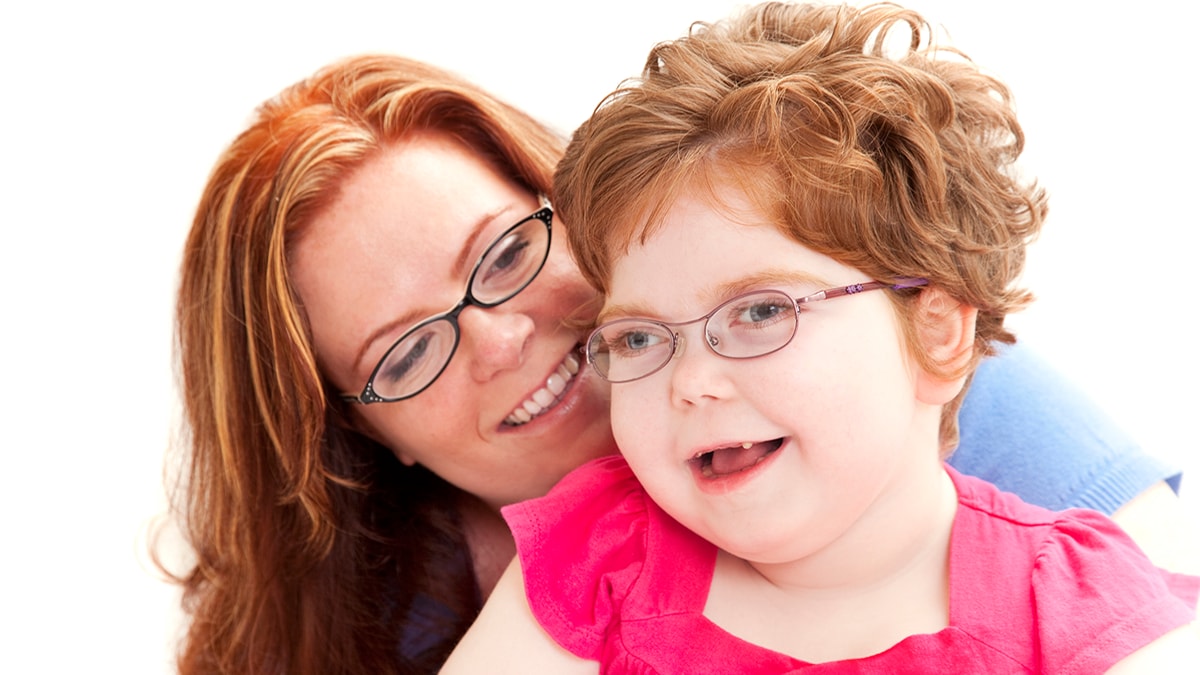Key points
- Caring for someone with a disability while also caring for yourself can be challenging.
- Information, support, advocacy, empowerment, care, and balance can encourage caregivers and help them provide the best care to others.
- Use these tips to help you and those you care for stay safe and healthy.

Overview
If you are a family member who cares for someone with a disability—whether a child or an adult—combining personal, caregiving, and everyday needs can be challenging. This site has information for family caregivers such as yourself to help you and those you care for stay safe and healthy.
Caregiving tips for families of people with disabilities
These general caregiving tips provide families with information on how to stay healthy and positive. Remember that these tips can be used to address many family issues. Information, support, advocacy, empowerment, care, and balance can be the foundation for a healthy family and are appropriate no matter what the challenge.
Be informed
- Gather information about your family member's condition and discuss issues with others involved in their care. Being informed will help you make more knowledgeable health decisions and improve your understanding about any challenges your family might face.
- Notice how others care for the person with special needs. Be aware of signs of mental or physical abuse.
Get support
- Family members and friends can provide support in a variety of ways, and they usually want to help. Determine if there are big or small things they can do to help.
- Join a local or online support group. A support group can allow you to share information and connect with people who are going through similar experiences. A support group may help combat the isolation and fear you may experience as a caregiver.
- Don't limit your involvement to support groups and associations that focus on a particular need or disability. There are also local and national groups that provide services, recreation, and information for people with disabilities.
- Friends, family, healthcare providers, support groups, community services, and counselors are just a few of the people available to help you and your family.
Be an advocate
- Be an advocate for your family member with a disability. Caregivers who are effective advocates may be more successful at getting better service.
- Ask questions. For example, if your family member with a disability uses a wheelchair and you want to plan a beach vacation, find out if the beaches are accessible by a car, ramp, portable walkway mat, or other equipment.
- Inform other caregivers of any special conditions or circumstances. For example, if your family member with a disability has a latex allergy, remind dental or medical staff each time you visit them.
- Document the medical history of your family member with a disability and keep this information current.
- Make sure your employer understands your circumstances and limitations. Discuss your ability to travel or to work weekends or evenings. Arrange for flexible scheduling when needed.
- Become familiar with the Americans with Disabilities Act, the Family Medical Leave Act, and other state and national provisions. Know how and when to apply them to your situation.
Be empowering
- Focus on what you and your family member with a disability can do.
- Find appropriate milestones and celebrate them.
- If someone asks you questions about the family member with a disability, let him or her answer when possible. Doing so may help empower the individual to engage with others.
- When appropriate, teach your family member with a disability to be as independent and self-assured as possible. Always keep health and safety issues in mind.
Take care of yourself
- Take care of yourself. Caring for a family member with a disability can wear out even the strongest caregiver. Stay healthy for yourself and those you care for.
- Work hard to maintain your personal interests, hobbies, and friendships. Don't let caregiving consume your entire life. This is not healthy for you or those you care for. Balance is key.
- Allow yourself not to be the perfect caregiver. Set reasonable expectations to lower stress and make you a more effective caregiver.
- Delegate some caregiving tasks to other reliable people.
- Take a break. Short breaks, like an evening walk or relaxing bath, are essential. Long breaks are nurturing. Arrange a retreat with friends or get away with a significant other when appropriate.
- Don't ignore signs of illness. If you get sick, see a healthcare provider. Pay attention to your mental and emotional health. Remember, taking good care of yourself can also help the person you care for. Exercising and eating healthy also are important.
Keep balance in the family
- Family members with a disability may require extra care and attention. Take time for all family members, taking into account the needs of each individual. For example, it's important for parents of a child with a disability to also spend time with each other and with any other children they might have.
- Consider respite care. "Respite" refers to short-term, temporary care provided to people with disabilities so that their families can take a break from the daily routine of caregiving.
Emergency and disaster preparedness
It is important that people with disabilities and their caregivers make plans to protect themselves during an emergency or disaster. Emergencies and disasters can strike quickly and without warning. They can force people to leave their homes or to be confined in their homes. For the millions of Americans who have disabilities, emergencies—such as acts of terrorism—and disasters—such as fires and floods—present a real challenge.
For more information
- Caregiving Resources: Find more information and resources on caregiving, including tip sheets and links to organizations and networks that can provide support.
- Resources from Administration for Community Living, U.S. Department of Health and Human Services
- Finding Help for Yourself and a Loved One
- Benefits for Children with Disabilities (Social Security Administration)
